When I was young I devoured books. My
mother told me I taught myself to read...that she found me reading a
book one day, and that was that. I'm not sure if that's true or
sentimental apocraphya, but a lot of my childhood found me either
wandering our land, with my nose stuck in a book, or both
simultaneosly. Sadly, adulthood demands its compromises with
bellowing voice. I have a hard time setting aside blocks of time to
read, and it seems so frustrating that reading almost becomes a chore
to schedule. And at least for me, my imagination isn't as immersive
as it seemed like it was as a kid. But I still enjoy reading, even if
it tends to come in four page spurts every night before I turn off
the light.
For the last several years, my friend
Joel has
provided a summary of the books he'd read in the previous year. The
sheer volume of books he reads consistently makes me wonder whether
he's either cloned himself, or never leaves the house. Seeing as I
know from his fantastic sojourns around Tennessee that the latter
isn't true, I remain with no other option than to believe the former.
(I for one welcome our new overlord and his unholy clone army).
Anyway, this
year he read 74 books. Not only that, but he accompanied his
post with some his amazing photography. I'm almost ashamed to make
this post after reading his, but such is life. I hope he find this
the sincerest form of flattery as I blatantly mimic his post again
this year, picking some shots from the year that somehow match my
paltry list of books (13 and a half).
Symbolic
picture of my journey to reading this year, battered by life on all
sides. And reading is a lighthouse. For some reason.
This was sort of a meh year in books,
not only in number but in content. Even with three Cormac McCarthy
novels in the mix, I just didn't read much this year that really blew
me away as being amazing satisfying. It felt the same in terms of
photography. I really didn't produce a lot that I thought was really
good stuff. Here's to better luck next year.
Tales of the
Jazz Age – F. Scott Fitzgerald
Fitzgerald is
usually good for some good characters, but this book was a bit
forgettable. I mean, literally forgettable. I had to go back and
remind myself what it was about. It was a lot like a b-sides album
for Great Gatsby or the Beautiful and the Damned.
Green
light (get it?)
Empire of the
Summer Moon – S.C. Gywne
This sweeping story
of the rise and fall of the Comanche and Quanah Parker was
comprehensive, but teetered dangerously between sensationalistic
portrayals of the Comanche as soulless savages and the opposite
extreme detailing the injustices done unto them by the white
settlers. When the author wasn't in either manic or depressive mode,
it was very engaging. Overall though it reminded me of a history
class where one kid constantly has to interject and tell everyone how
awesome ninjas are, while another one has to break into
self-righteous rants, and the professor just lets them go at it. In
other words, it reminded me a lot of Erik Larson. I find history
interesting enough without sensationalizing it.
Prairie
Grasses
Child of God –
Cormac McCarthy
Cormac McCarthy is
perennially one of my favorite American authors. However, his
proximity to favorite seems to move proportionally with which book
I'm reading. His western novels, including the Border trilogy and his
masterwork, Blood Meridian, are for me the epitome of the 20th
century American novel. His books of the South and the Appalachians
just don't draw me in to the same degree. Child of God is an
incredibly disturbing book, and an incredibly well written one. As
with his other novels, the place is as much of a character as the
actual characters. But as with other entrees on the list, the novel
seems more of an exercise in characters, and less in a story that
touches on universal themes. It's uncannily creepy anti-hero is
written with a beginning subtlety that's similar to the
self-deception and understated nuance of Ishiguro's characters. But
it just doesn't go anywhere near as far as I would like it to, while
still going way past where I'd like it to go in another more grisly
direction. Still an amazing work, just not overly enjoyable.
Mingus
Mill, Great Smokey Mountains
Zone One –
Colson Whitehead
I had really really
high hopes for this book, which promised to be a literary, true
literary, take on zombies. I'm a little zombied-out these days, but I
still have a hard time turning down a good zombie book. It's
incredibly well written in places, but ultimately just doesn't rise
to literature grade. It's really a fan-fic zombie/apocalypse book
with a lot of graduate-level English shoveled on top. For what it's
worth though, Whitehead's style and pacing are quite good; it's just
the lack of a better story to go with it that hamper this book. The
“twist” near the ending playing on racial stereotypes was
heavy-handed and lacked artfulness.
Junction
Boneshaker –
Cherie Priest
It is very rare that I don't finish a book. I did not finish this
rambling mess of a book. I like steampunk as a now somewhat passe
design aesthetic, but that's about it. I read Moore's excellent
League of Extraordinary Gentlemen, but honestly, I think that was
really the high tide point for the genre, and many wouldn't even call
it steampunk. I kind of got the impression that to enjoy this book,
one had to be a pretty big steampunk fan...like, dress up in
sprockets at comic book conventions sort of big fan. Either that or
you were new to our language, and thought this was a particularly
engaging clockwork repair manual. To me, unfortunately, it was just
really bad fan fiction-esque drivel.
Stirred Wood
Japanese Fairy
Tales – Yei Theodora Ozaki
Since
the advent of Kindles and smartphones in my life, I have been reading
a larger portion of classics. To be honest, this is mostly because 1)
they're often free as public domain works, and 2) part of me is still
making the mental transition between reading good solid paper books,
and being willing to pay money to read virtual books. While this
seemed an odd choice stacked up against the volumes of literary
masterpieces, it ended up being an interesting study in cultural
value systems, which sounds interminably boring, but is the same
basic idea as reading manga and saying “wow...the japanese have a
thing about tentacles”, but in more literary and less penetrative
context. The fairy tales at some points seemed oddly jarring due to
the lack of cultural underpinning they were based on, which sparked
some interesting thoughts about how we use stories to explain and
enhance the underlying cultural values of a society. I could digress
into Durkehim's totemic principle, but that really would be
interminably boring. What I found most interesting after having read
this book and thought these thoughts, was in subsequently reading
about the author/translator. According to wiki, “...Ozaki
came from an unusual background. She was the daughter of Baron Ozaki,
one of the first Japanese men to study in the West, and Bathia
Catherine Morrison, daughter of William Morrison, one of their
teachers. Her parents separated after five years of marriage, and her
mother retained custody of their three daughters until they became
teenagers. At that time, Yei was sent to live in Japan with her
father, which she enjoyed. Later she refused an arranged marriage,
left her father's house, and became a teacher and secretary to earn
money. Over the years, she traveled back and forth between Japan and
Europe, as her employment and family duties took her, and lived in
places as diverse as Italy and the drafty upper floor of a Buddhist
temple.” The Author, it seems,
embodied the bridge between the two cultural traditions, which casts
the book in new light as well.
Lotus
Blossom
The Orchard
Keeper – Cormac McCarthy
The second of three
McCarty novels this year, it's another Tennessee novel. Place seems
not only a vivid and tenable character in McCarthys novels, it also
seems a force on the author's writing itself. Compared to the broad
sweep of his western novels, his Tennesee/southern novels feel like
the forests and ramshackle buidoings they explore exert a pressure on
the writing as well as the characters. This is a testament to the
solidity of place in McCarthy's work, but it's less enjoyable. I feel
like I must almost be an apologist for McCarthy in these books, which
is absurd because they still stand against some of the better
American literature of their era. One just has to work a little
harder to dig out the beauty. I don't know a lot about Cormac
McCarthy as a person, but from reading most of his works, I have
learned three potential things about him: 1) He loves the West, 2)
he's somewhat scared of Mexico, and 3) he has an underlying disdain
for Appalachia. None of these may actually be true, but comparing his
westerns to his easterns, my take away is mostly that his westerns
were healthier books for him. Orchard Keeper was better than Child of
God, as it has an interesting set of characters while also having a
fairly interesting story of bootlegger era Tennessee.
Foggy
Treeline
Cat's Table –
Michael Ondaatje
I really liked this
book, which isn't altogether surprising, as I really like Ondaatje.
It is an exercise in characters, but in a surprisingly expansive
scope for a book that mostly takes place among children on a boat. It
reminded me a bit of a much better written version of the basic story
archetype from The Kite Runner. Ondaatje's more sweeping novels
(Anil's Ghost, The English Patient) are a bit more serious, but I
actually enjoyed the humor, even with tragedy underlining, of this
book. The story of a boyhood passage is really the story of a passage
from boyhood, and Ondaatje nails the changing voice of the narrator
with style.
Boy
and Sea
Kings of
Infinite Space – James Hynes
Let me preface this by saying I work for a fairly bureaucratic
organization in Houston, Texas. I know all the jokes about government
(though we aren't really one), and government workers. I've told the
jokes. This books starts off as a fairly smartly written satire of
the unbearable lightness of being-in-a-cubicle in a Texas
bureaucracy. At some point it devolves a bit from satire into over
the top oddness. There were parts that were very well written, and
parts that were just hard to read. Overall I can honestly say it's my
favorite book about Texas bureaucrats that also involves zombie-esque
horror and human sacrifice. Other than that, it had some fun moments,
but overall was not a favorite.
Happy Erosion
The Cinnamon
Peeler – Michael Ondaatje
This was an impulse buy along with another Ondaatje book I read last
year. It is a dense book of poetry, rich with visual imagery and
interwoven themes. But let me emphasize the dense. I had to reserve
this collection for reading at times other than right before bed when
it would have made my head explode. As with a lot of other Ondaatje
works, it deals with issues of personal origin and change, and was
very rewarding. A light read, however, it was not. I could have
probably burned through a couple more books in the time it took me to
put this one to bed. But I'm not sorry.
Wood layers
The Rough Riders
– Theodore Roosevelt
Another free-on-Kindle work, this was just damn enjoyable. A bit more
dry than some of his other works, but still written with that famous
Roosevelt mix that can only be described as equal parts thoughtful,
dedicated scholar and rambunctious, mustachioed Tyrannosaurus. I
started reading this in the bar of the Menger Hotel in San Antonio,
mostly for the somewhat pretentiously self-involved idea of it being
cool to read a Roosevelt work while drinking in the same bar where he
actually drank and recruited some of his rough riders. The Menger is
a historic place and its bar is pretty much given over to Roosevelt
memorabilia. Like much of his work, it's less a pure history, and
more a no holds barred bear hug of a love letter to a time and place.
I can deal with some of the less than PC elements, because Roosevelt
is just such fun to read.
Alamo Plaza, San Antonio
Roughing It –
Mark Twain
For me, Mark Twain
has the distinction of being an author I admire, but whose books
usually don't do much for me. Unlike Roosevelt, whose books on travel
and the west are filled with exuberance that ages well, Twain's humor
is a bit corny in a lot of places. Roughing it was worth the read,
but you get the feeling that it was probably a lot more hilarious
when things, and people, were a bit slower. Still, when he's on, he's
on, and this story of intercontinental travel is definitely on in
places.
The
Hiking Party
Suttree –
Cormac McCarthy
Yet another slog
through a McCarthy Tennesee novel. I am caught between the feeling
that I should have read all his western stuff first so it didn't get
shaded by these books, and the feeling that I'm glad I got hooked on
him first, and then quietly came down from the rush with these lesser
works. Of the three this year, however, Suttree was the best. While
still a character-focused book without an epic storyline, it's the
pinnacle of McCarthy's Tennessee novels. The place is almost the
primary character in this book, and the tension between it and the
Buddha-esque protagonist as he winds his way through a collection of
its denizens is palpable. The counterpoint between Suttree's spartan
existence on the rundown fringes of mid-century Knoxville and the
tragedies of his past play out in his struggle to remain a shepherd
of his fellow men in his own flawed way, among the almost oppressive
weight of their surroundings and failings. It's much more reminiscent
of the “we went to Mexico and then things went bad” stages of
McCarthy's westerns than the odd and claustrophobic Child of God and
The Orchard Keeper. This was not an easy read though...the writing,
at times, is almost as speaking in tongues as Joyce in Ulysses. What
is fantastic, though, is his ability to mirror his character so
artfully by the change in style throughout the book. It wasn't my
favorite McCarthy work, but in terms of the writing alone, it is one
of his best accomplishments.
The
Hardtimes
Heart of
Darkness – Joseph Conrad
Speaking of dense, I was not expecting Conrad's story to be as dense
as it turned out to be. I was expecting something more along the
lines of Jack London and the usual straight ahead adventure stories
of the era. While Heart of Darkness has those elements, it also is
undeniably nuanced and layered. A lot of other Conrad novels don't
really aspire to that level of writing, so I was pleasantly
surprised. This is another of my list of “I was supposed to read
this in High school but didn't” books. To some degree it amazes me
the level of books we feed to our children, and the comparative level
of books we end up reading ourselves. At least I hope kids still have
to suffer through things like Siddhartha and Ethan Frome. (Though not
Tess of the D'Urbervilles which was just straight up horrendous.)
It's often far better fare than the crap we consume. But I digress.
Heart of Darkness was really good stuff.
Hollow
and Leaf
My list of books
for this year, which is already behind schedule, looks to be a bit
more promising and include a bit more authorial variety. Up next is
Cather's My Antonia (which I'm already in love with after only the
first chapter), Murakami's 1Q84 (which may very well kill me to get
through due to its ponderous bulk), Enduring Love and Sweet Tooth by
Ian McEwan, The Wilderness Diaries of Everett Reuss in counterpart to
the Journals of Lewis and Clark, and the new Justin Cronin novel.
We'll see what else comes along...









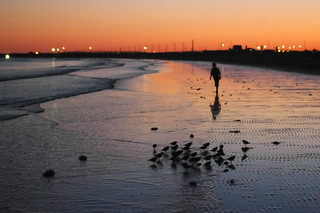
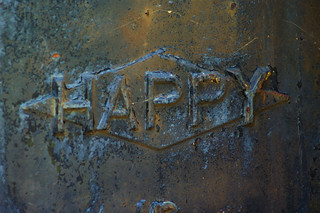
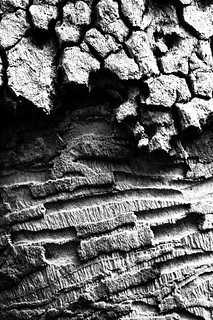
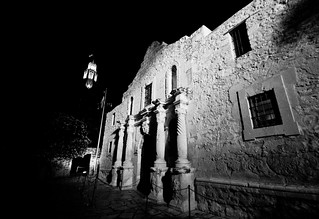

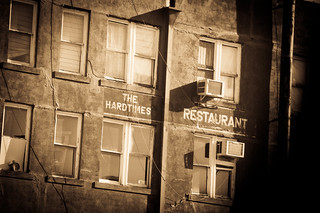

1 comment:
I had a similar experience with foreign fairy tales several years ago. I was in an international book club, and one of the books we read was a collection of Romanian fairy tales. The images were fascinating, but the basic morality plays underpinning the stories were completely different and, even with discussion, sometimes inscrutable for us.
Also, don't feel bad about a low number. Remember all of the other people, whose number is zero.
Post a Comment